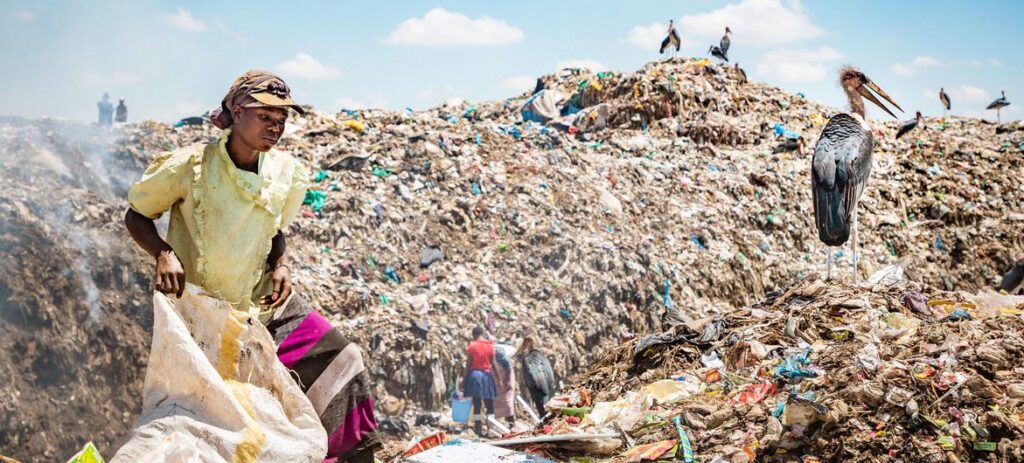Currently, the world generates 2 billion tons of municipal solid wastes each year, of which 45% is not adequately managed, revealed Antonio Guterres.
Citing figures from the World Bank and the United Nations Environment Programme (UNEP) to celebrate for the first time on Thursday the International Zero Waste DayThe UN Secretary General lamented that humanity is treating the planet like a garbage dump, destroying its only home.
He affirmed that every minute he is thrown to the ocean the equivalent of a garbage truck full of plastic, and that the contamination and chemicals poison the water, air and soil.
The 10% of global emissions of greenhouse gases emissions come from growing, storing and transporting food that is never used, while more than 800 million people suffer from hunger in the world, he said.
Figures also show that poorly managed waste is the third largest global emitter of methane. All of this costs the global economy billions of dollars annually, he added.
Guterres asserted that reducing waste would significantly reduce the carbon emissionsbut time is running out to avoid a climate catastrophe.
The UN Secretary General warned that, according to scientific projections, solid waste will double by 2050 and reach 4 billion tons per year.
The three lines of action
To counteract the phenomenon, Guterres proposed three lines of action involving industry, governments and civil society.
Industry
- Polluting companies must design products and services that require fewer resources and materials, ecologically managing waste at all stages of the production cycle, extending the useful life of their products and investing in waste recycling systems in the communities in which they operate.
Government
- It must invest in the development of modern waste management systems and develop policies that encourage citizens to recycle all the goods they consume.
Society
- Consumers must appeal to responsibility and find possibilities for reuse, recycling, reconversion, repair and recovery of the products they use and think twice before throwing them away.
Circular economy would create millions of jobs
The Secretary General argued that simultaneous action along these three lines would bring major economic benefits and stressed that a circular, zero-waste economy would lead to the creation of hundreds of millions of jobs.
"But all of that requires global collaboration," he emphasized.
He considered that the mere celebration of the International Zero Waste Day demonstrates that the political will exists to combat the source of pollution posed by garbage.
"Let us work as one to build a waste-free circular future for people and the planet," Guterres said.
The heads of the UN agencies joined the Secretary General in calling for a circular economy.
Qu Dongyuthe general director of the Food and Agriculture Organization of the United Nations (FAO) called for using existing biological resources more efficiently and with less waste, rather than relying on finite fossil-based resources.
He said that by 2050 the world population will be about 10 billion people, implying a 56% increase in global demand for food and non-food agricultural products.
Meeting this additional demand for agricultural inputs will require producing and consuming in a more sustainable and healthier way, with fewer inputs, he said.
The circular and sustainable economy is the way to achieve this goal, making the bioeconomy a strategic priority for FAO to reduce waste and pollution, as it values and promotes the responsible production and consumption of renewable natural resources, contributing to the reduction of waste and pollution. climate actionThe company is also committed to the conservation of biodiversity and the restoration of ecosystems, he said.
Source: UN


